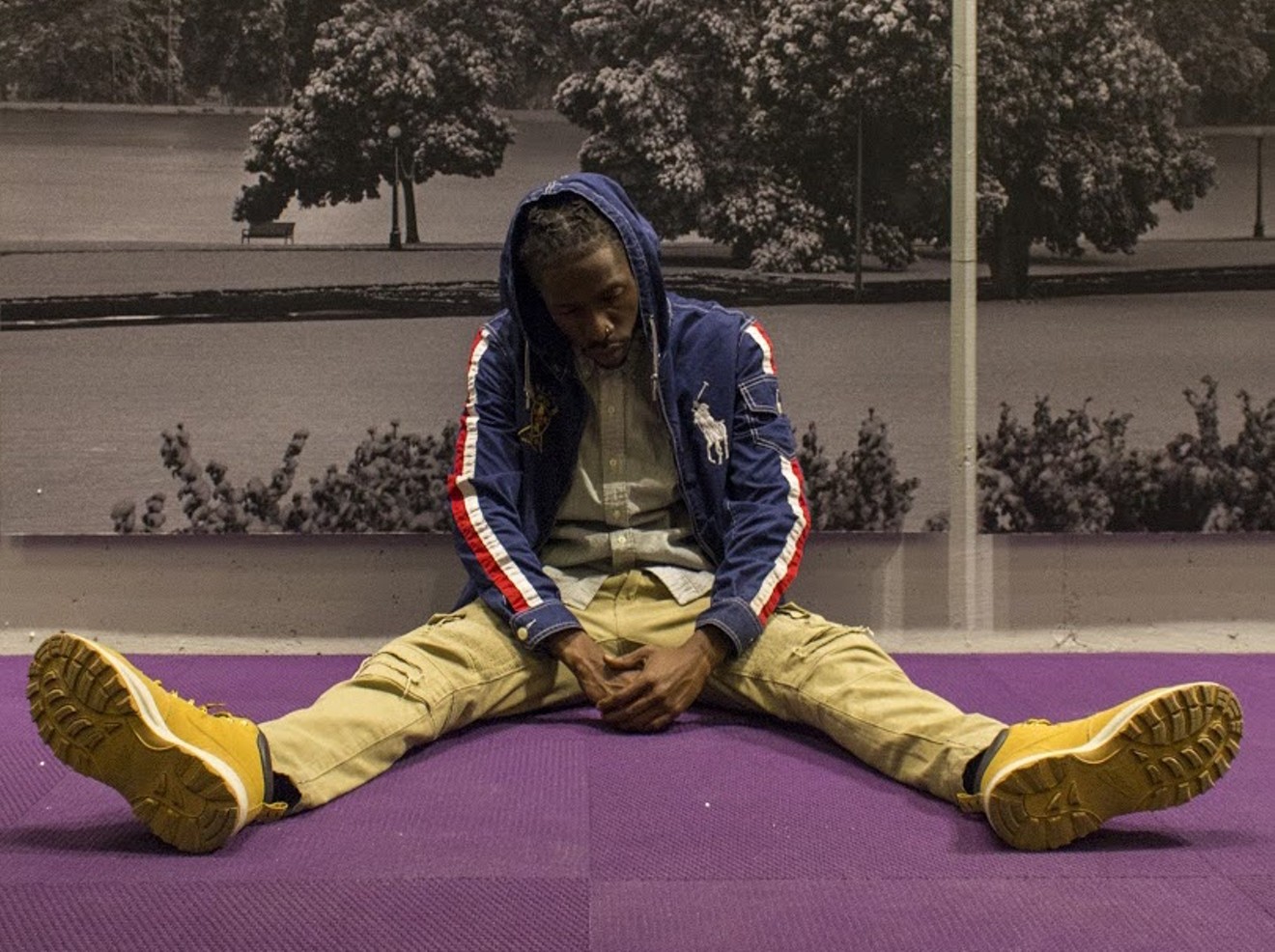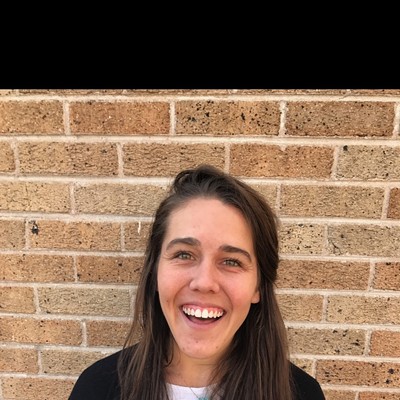Timmale Dotson, a Denver rapper who performs as Maleman, is part of the New Year's Eve on the Rocks concert, billed as the first ever New Year's Eve concert at Red Rocks (Feyline, the company throwing the event, has scheduled a backup venue, Magness Arena at the University of Denver, and will announce whether the event will actually take place at Red Rocks roughly a week out, based on weather and fan safety, says Tyler Fey, the company's head). The event's lineup is strictly hip-hop, spotlighting artists like Post Malone, Lil Yachty, Migos and local hip-hop hero Trev Rich.
Dotson grew up in Montbello and has been rapping since age seven. He says this New Year’s Eve show is an indication of big things to come from local hip-hop. Aside from preparing for the upcoming performance, Dotson has been busy over the last year with his own music. He released his new single, “Finish Line,” with rapper Cassidy, at the end of November. The two collaborated in California after they met via an over-the-phone rap battle for which Cassidy was a guest judge.
We sat down with Dotson to talk about what’s next for hip-hop in Denver, how he developed his delivery, his style as a rapper and of course, the New Year’s Eve show.
Westword: I do feel this New Year’s Eve show being an all-hip-hop bill says a lot about how the Denver scene has evolved.
Dotson: [The scene is] evolving tremendously. To put together a show like that with all the top artists, like Migos, Post Malone — they have the top songs in the country — Lil Yachty and Young Thug. They’re all top-tier artists right now, and to put them all on one stage in Denver is huge. It just shows that we’re starting to make a nice little impact on the national scene. Think about Migos; they're bringing in their new year in Denver — that’s huge. They could be in Atlanta or anywhere else, but they’re going to be in Denver, at Red Rocks.
I think the moves and the noise we’ve been making and the economy, the weed and all that helps us, but that was the middle man of getting people to pay attention to Denver and embrace this culture and see what the hell is going on out here…. I think the economy gave us a little light, but we’ve always been a great spot for music. We’ve always had great artists. I think the most talented rappers are coming out of Denver, and I listen to a lot of music. I’ve heard some of the best verses I’ve ever heard in my entire life from Denver artists. I think it’s good that people are starting to catch wind of what we’re doing out here. I think it’s going to continue to grow, but I think we need to capitalize and execute on what we have right now so we can really blow this thing out. I don’t want people to come out here, look at it really quick and then leave it alone. I want people to see we’re a hub. In the ’50s and ’60s, Denver was the jazz spot of the West. We need to bring that back, hip-hop-wise. I think we have a lot of work to do, but I think we’re moving in a great direction, I think we’re moving at a great rate. I’m proud of the artists here and the people that put together the culture, like promoters and everyone that is working together to bring eyes here. It’s pretty dope.
How would you describe Denver’s hip-hop scene?
We’re in a real gray area right now. For so long, it has just been strictly local. You know that saying “It’s a small world.” Well, it’s even smaller in the hip-hop community. Everybody knows everybody, but everybody wants to be that pioneer, that frontrunner. It’s been like that for so long, and people have been putting in the work to do so, but I think the support wasn’t always there, just because you have so many people trying to do the same thing. It’s like a clash of interests: I love your music, I like you as an artist, but I’m trying to do the same thing. I want your fans, my fans and new fans to pay attention to me, and if they’re paying attention to you, that takes away from me.
But now I think we’re starting to embrace music not just on a local level. Not just “He’s a Denver rapper,” but “He’s a rapper, he’s good, and I just happened to go to high school with him” — stuff like that. We’re starting to take it more seriously and appreciate the process that we as artists and creatives are taking. Some of our movements are starting to grow and become more supportive, so If I could sum the Denver hip-hop scene up in one word, it would be "supportive."
What do you think is so noteworthy about the rappers and hip-hop music coming out of Denver right now? What do you think this scene is bringing to the table that you wouldn’t necessarily find in another city’s scene?
With all of the music coming out of Denver, I think what stands out across the board, and what I respect the most, is the passion from every artist. Not in the cliché sense, but like pure love and excitement for the music we’re putting out. We believe in it, and we believe in our movements. You can hear it in the music. You can see it during the performances. It’s dope. I don’t think you find that everywhere else.
How did you play around with words and get to your delivery? Rap is such a game with how you’ll say things within a limited framework.
I like to call myself a student of the game, because I will be a nerd with it. I will print out your lyrics and read it like poetry. It’s different to rap it and spit it, but when you read it, 'Oh, he’s saying some stuff!' I think that's what helped me play with different styles and see what worked for me. I think I got pretty good with my ear for what people liked when they listened to rap. Of course, punchlines — when you say a crazy metaphor that makes someone think, just certain things that make people say, “Oh, how did he put those two things together?” Just people’s reactions helped me [gauge] how I should rap.
I’m not a gangster rapper. But if I can say something that will strike a nerve with a gangster crowd or something we can relate to, and I can say it in a clever way and get that reaction, that’s what helped me develop my style. And listening to a bunch of music that makes me happy, that I can’t stop listening to and I have to repeat it, if it has an effect on me. I feel like I have really good judgment when it comes to music. I have a great ear for what’s a hit, whether it’s hip-hop, R&B. I don’t care if it’s metal. I don’t care if it’s country. There are certain songs that I can tell it’s a hit, period. How did they get to that creative process? Why is it a hit? Why do people like it? So trying to pinpoint what exactly those things were helped me develop my rhyme schemes and my delivery. My name is Maleman, so delivery is huge. You’ve got to feel this: Delivery is my biggest thing.
Maleman, at New Year's Eve on the Rocks, Sunday, December 31, Red Rocks Amphitheatre, 18300 West Alameda Parkway, Morrison, $175, 720-865-2494, doors at 5 p.m.
[
{
"name": "Air - MediumRectangle - Inline Content - Mobile Display Size",
"component": "12017618",
"insertPoint": "2",
"requiredCountToDisplay": "2"
},{
"name": "Editor Picks",
"component": "17242653",
"insertPoint": "4",
"requiredCountToDisplay": "1"
},{
"name": "Inline Links",
"component": "18838239",
"insertPoint": "8th",
"startingPoint": 8,
"requiredCountToDisplay": "7",
"maxInsertions": 25
},{
"name": "Air - MediumRectangle - Combo - Inline Content",
"component": "17261320",
"insertPoint": "8th",
"startingPoint": 8,
"requiredCountToDisplay": "7",
"maxInsertions": 25
},{
"name": "Inline Links",
"component": "18838239",
"insertPoint": "8th",
"startingPoint": 12,
"requiredCountToDisplay": "11",
"maxInsertions": 25
},{
"name": "Air - Leaderboard Tower - Combo - Inline Content",
"component": "17261321",
"insertPoint": "8th",
"startingPoint": 12,
"requiredCountToDisplay": "11",
"maxInsertions": 25
}
]












